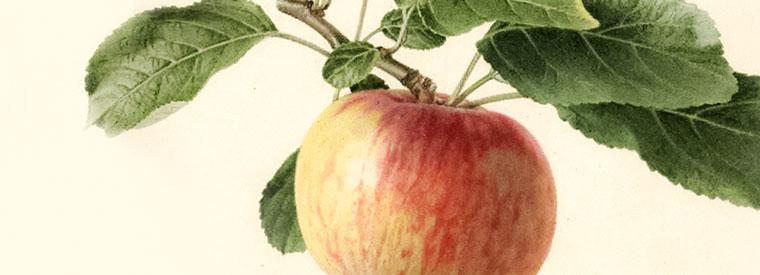Stay me with flagons; comfort me with apples.

Fruit
MAGNUM BONUM is also called Bonum, from the American Pomological Society assignment of single names to apple varieties, and is speculated to be a seedling of Hall grown in the 1820s in North Carolina by John Kenney, or Kinny, of Davidson County. It was recorded in 1854. The medium-sized, roundish-oblate fruit is mostly red on a greenish-yellow background with some indistinct red striping and large conspicuous white and russet dots. The white flesh, sometimes stained red, is tender and juicy with an aromatic, subacid flavor. It is highly susceptible to cedar apple rust, but does not seem to be affected by other major apple diseases. The tree begins to bear within two or three years, even on standard rootstock. Beach in Apples of New York, 1905 wrote: "…medium to large with yellow skin mostly covered with crimson and dark red…its flesh is white…firm, fine, tender, juicy, aromatic, mild subacid, very good for dessert." In Central Virginia, Bonum, as it was called, was a commercial variety in the 1920s and 1930s. This dessert apple stores well and ripens in September.
Ripening Period
- Early Fall - September

